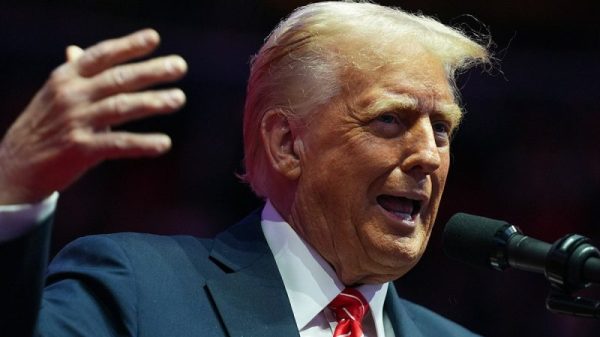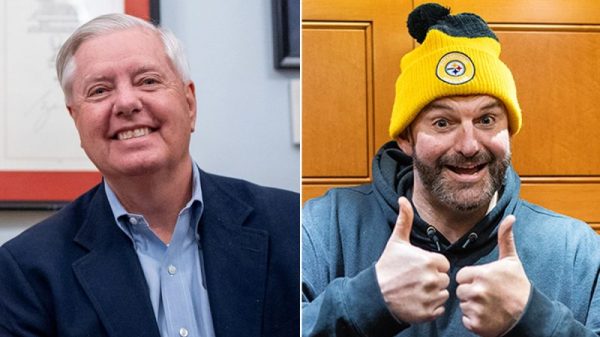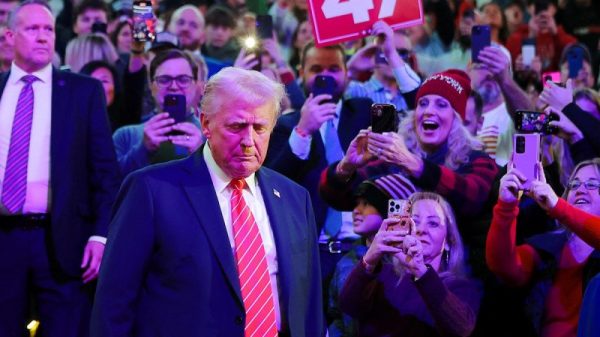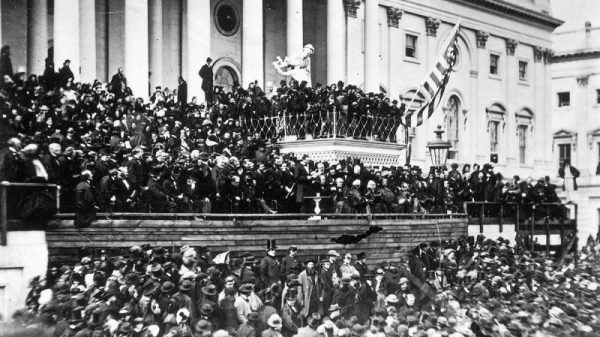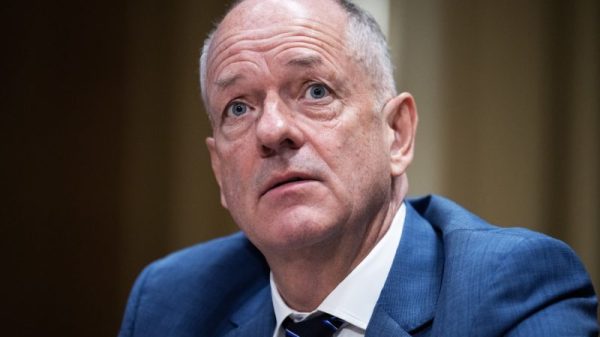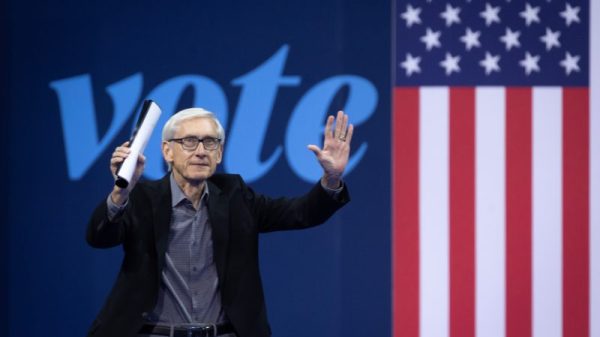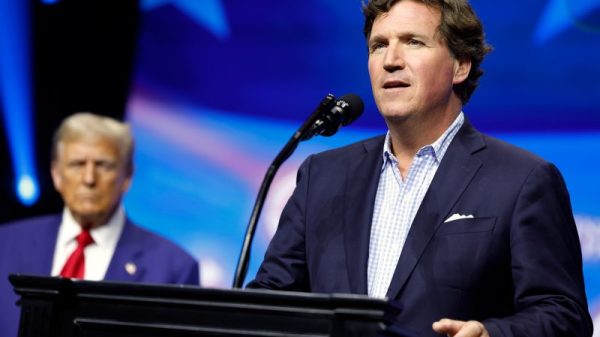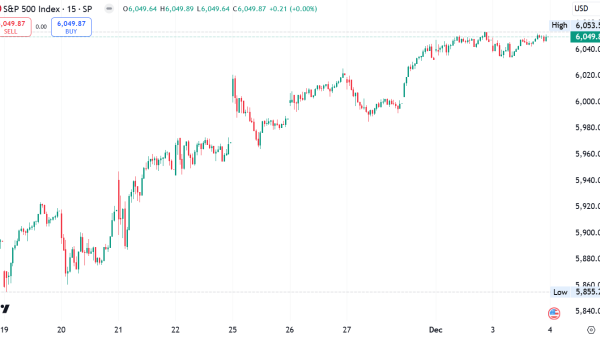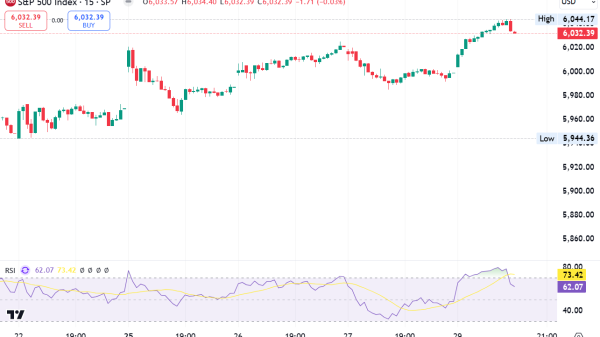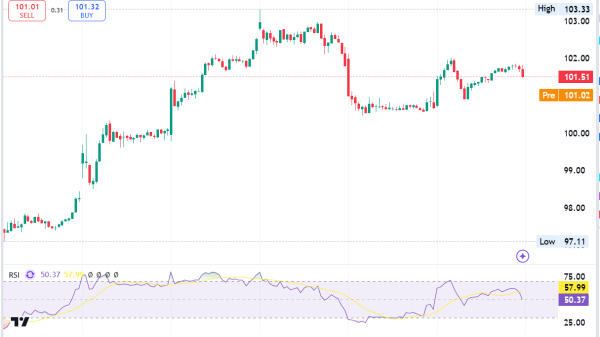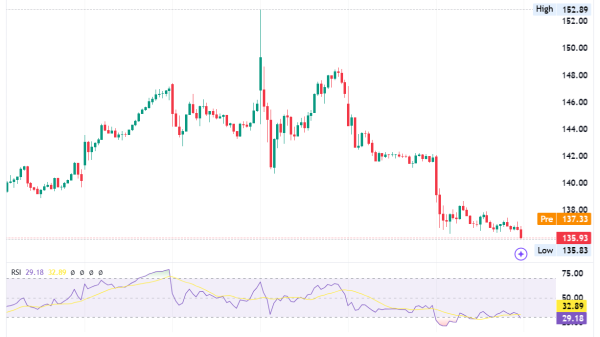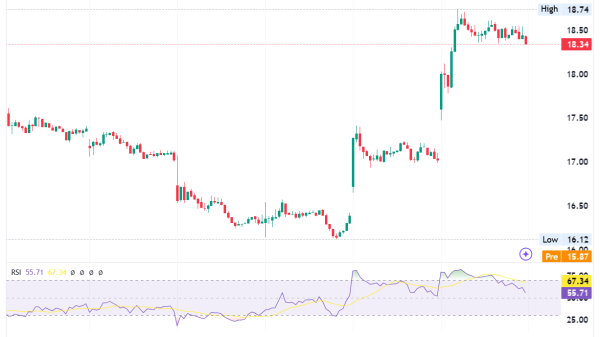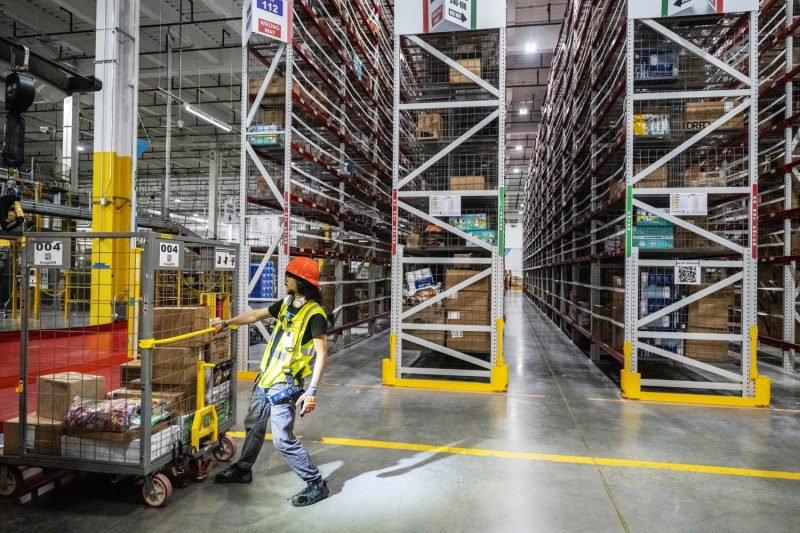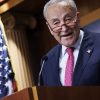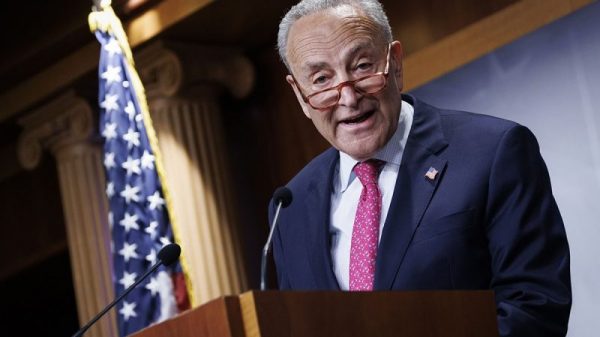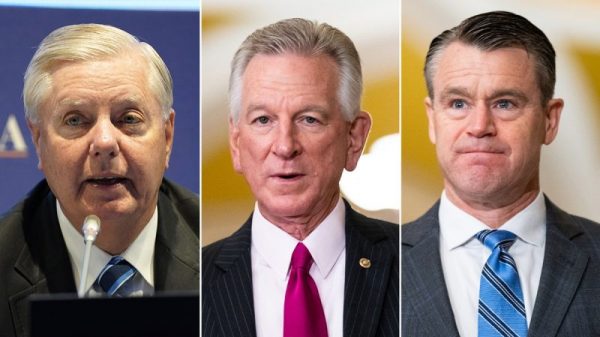The U.S. unemployment rate rose to 4.3% in July and hiring slowed, adding to signs of a broader downturn in what has been a solid U.S. economy.
The Bureau of Labor Statistics reported Friday that the U.S. added 114,000 jobs, down from 206,000 in June and well short of expectations. Economists were expecting the unemployment rate to have been unchanged from June’s 4.1% reading.
The latest report will likely add to worries from some economists that the Federal Reserve has waited too long to cut interest rates in its bid to stamp out inflation. Earlier this week, Fed Chair Jay Powell indicated the first rate cut of the post-pandemic period would come in September, even as many economists flagged signs of a rapidly cooling labor market.
Friday’s report adds further evidence to those concerns.
A worker moves packages at an Amazon same-day delivery fulfillment center in Bronx, N.Y., on July 16, 2024. Stephanie Keith / Bloomberg via Getty Images
‘Oh dear, has the Fed made a policy mistake?’ wrote Seema Shah, chief global strategist at Principal Asset Management based in the UK, in a note to clients following the jobs report’s release. ‘The labour market’s slowdown is now materialising with more clarity.’
She noted job gains have now dropped below the 150,000 threshold ‘that would be considered consistent with a solid economy,’ and that a September rate cut ‘is in the bag.’
‘The Fed will be hoping that they haven’t, once again, been too slow to act,’ Shah said.
Beyond the report’s headline figures were mitigating factors and other signs that the economy remains on relatively firm footing.
Much of the increase in the unemployment measure was driven by temporary layoffs, while the BLS indicated that weather-related factors had temporarily increased the ranks of those who still hold jobs but were technically not at work during the month.
Meanwhile, wage gains continued to outpace inflation — continuing a trend that has now taken hold for months — and more people rejoined the workforce last month, something reflected in an increased labor force participation rate.
Yet outside of health care, construction and some transportation and warehousing roles, there was little meaningful job growth, with manufacturing adding just 1,000 to its payrolls and professional and business services positions declining by 1,000.
‘Even a few months ago, the labor market seemed fine, the trajectory looked stable,’ said Guy Berger, director of economic research at the Burning Glass Institute, a think tank. ‘Today, things look a bit shakier.’
While Berger doesn’t see an imminent recession, it wouldn’t take much for the gradual downturn to become a more significant one, he said.
The Federal Reserve doesn’t envision that outcome — and in fact is largely in control of it, economists say.
On Wednesday, the Fed announced that it was leaving its key interest rate unchanged at about 5.5% even as Powell said a cut at its next meeting was ‘on the table.’
By cutting interest rates, the central bank would reduce the cost of borrowing for goods and services, which would result in lower monthly payments for consumers and businesses alike who are subject to variable annual percentage rates.
In turn, demand and hiring are likely to increase throughout the economy.
On average, companies are hanging on to their current workers — something reflected in the rate of layoffs’ falling to a record low.
Yet the hiring rate has also fallen to a level not seen since the onset of the pandemic — and before that, 2014.
The upshot: If you have a job, you’re unlikely to lose it these days, barring some exceptions.
But you’re going to struggle if you’re looking for a new one.
The Fed therefore believes it can put a floor underneath the labor market that prevents it from deteriorating further, Berger said.
While there is reason to believe it can accomplish that, there is an alternative view that it is already behind the curve and should have cut interest rates by now.
‘Historically, deteriorating labor markets generate a self-reinforcing feedback loop,’ former New York Federal Reserve President Bill Dudley wrote in a Bloomberg News op-ed last week. ‘When jobs are harder to find, households trim spending, the economy weakens and businesses reduce investment, which leads to layoffs and further spending cuts.’
Another worrying sign: The job growth that is occurring has been in an exceptionally narrow range of occupations, like health care and, to a lesser extent, government, particularly at the state and local levels.
From 2015 to 2019, the average monthly pace of payrolls growth outside of those industries was about 137,000, said Julia Pollak, chief economist at ZipRecruiter.
For the past six months, it has averaged 90,000, Pollak said.
And for the past three months, it has averaged just 58,000.
‘What we need to see is strong private-sector labor market growth, and outside of health care, what we’ve seen instead is a very, very rapid deceleration that has shown no signs yet of stabilizing,’ Pollak said.
The result has been an economy of haves and have-nots, she said.
‘The demand for labor has softened substantially; [high] interest rates are having a real effect,’ Pollak said. ‘They are causing businesses to forgo growth opportunities, something that’s causing consumers, especially low-end consumers, to pull back. We’re seeing a bifurcation in consumer behavior.’
Pollak also said leisure and hospitality jobs — a key entry point into the labor market — have actually declined outright in recent months, putting further pressure on workers to secure employment.
Berger said the best outcome is that there won’t be further deterioration. Sluggish growth, he said, is likely to continue for the foreseeable future.
‘I think the Fed is going to keep a lid on how much things heat up — it probably has a soft ceiling on how high it wants to go,’ he said.
‘So we’re going to be stuck in this period for quite a while, where the environment for someone looking for a job is just not great. Things could always get a lot worse, but if you’re hoping for things to turn around, I don’t think the prospect of a big rapid rebound is feasible. It’s going to be gradual and going to take time.’


